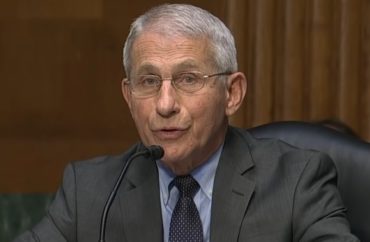
Federal court case takes aim at Biden-Big Tech partnership
The National Institutes of Health halted a $154 million research program intended to study “equitable health communication” and combat alleged medical misinformation.
The “pause” came “in the context of the current regulatory and legal landscape around communication platforms,” according to a website for the initiative.
A spokeswoman for the NIH did not answer direct questions about the reason for the pause.
A federal court is considering a lawsuit brought by plaintiffs who allege the federal government colluded with Big Tech companies to silence their speech, often critical of COVID policies or the integrity of the 2020 presidential election.
“The project was still in concept phase and is being paused to reconsider its scope and aims in the context of the current regulatory and legal landscape around communication platforms, as noted on the website,” Emily Ritter told The College Fix via email. “Our overall assessment will determine the future direction of the concept in terms of if or how it will move forward.”
Discovery in the case, Missouri v. Biden, found federal officials communicated with Big Tech platforms and pressured them to remove content, including a parody Anthony Fauci Instagram account.
The Fix asked how the NIH ensures its programs do not violate the First Amendment and if Missouri v. Biden played a role in the decision to pull the program.
The Fifth Circuit Court of Appeals allowed the federal government to continue to work with Big Tech while the lawsuit continues.
The initiative appears to have come from comments made by departing NIH Director Francis Collins in 2021.
“We basically have seen the accurate medical information overtaken, all too often, by the inaccurate conspiracies and false information on social media. It’s a whole other world out there,” Collins said.
“The concept envisioned the development, testing, and sharing of new approaches for effective and equitable health communication,” the NIH website stated. “Planning for the concept was informed by input from a request for information in April 2022 and a workshop held in May 2022.”
MORE: Pitt asked NIH for public relations health with aborted fetal tissue
The College Fix contacted the New Civil Liberties Alliance to ask if the cancellation of the initiative was a positive development, if they were concerned about the lack of transparency from the NIH and if they thought Missouri v. Biden played a role in the decision. NCLA is representing plaintiffs in the federal lawsuit.
The legal group said it “won’t be able to comment on this at this time.”
Alta Charo, a bioethicist and University of Wisconsin Law School professor who has advised the NIH, told KFF Health News that the NIH “is caught up in a larger debate about who gets to decide what is truthful information these days.”
The Fix contacted Charo to ask if she was concerned about why the study was canceled, if she knew of previous instances where medical research was halted due to political pressure and the importance of similar projects. She was on vacation and unable to comment.
The Fix also twice contacted Dean Schillinger, a researcher at the University of California San Francisco, in the past two weeks with the same questions. Schillinger has not responded to requests for comment.
Schillinger co-authored an article in JAMA Network Open, which is published by the American Medical Association, criticizing the NIH for canceling the program.
“The NIH’s unfortunate decision to halt the program, which took place in the face of mounting political pressures related to the study of misinformation, represents a serious threat to the integrity of science and to its successful translation,” he wrote.
“With so much at risk, this is precisely the wrong time to back away from research into a critical threat to the health of our country,” Schillinger wrote. “The chilling effect of the recent political actions to block the NIH and other government agencies from combating all types of health-related misinformation has very broad repercussions.”
“The program was deemed potentially so important that it would be supported through the agency’s Common Fund: a designation for high-priority programs that cut across normal institutional boundaries,” according to the NIH.
While representatives for the NIH have said that the project is on pause, it is listed under “former programs” on the website.
However, the pause does not mean an end to all “misinformation” research.
The NIH grant database lists millions of dollars in funded projects for 2023 alone that deal with “misinformation” and communication.
Projects include “Mitigating the Spread of Misinformation and Disinformation about COVID-19 Prevention and Treatment Initiatives among Hispanics” and “Investigating and identifying the heterogeneity in COVID-19 misinformation exposure on social media among Black and Rural communities to inform precision public health messaging.”
MORE: UMich, NIH to spend nearly $80 million on ‘DEI 2.0’
IMAGE: CSPAN
Like The College Fix on Facebook / Follow us on Twitter





Please join the conversation about our stories on Facebook, Twitter, Instagram, Reddit, MeWe, Rumble, Gab, Minds and Gettr.